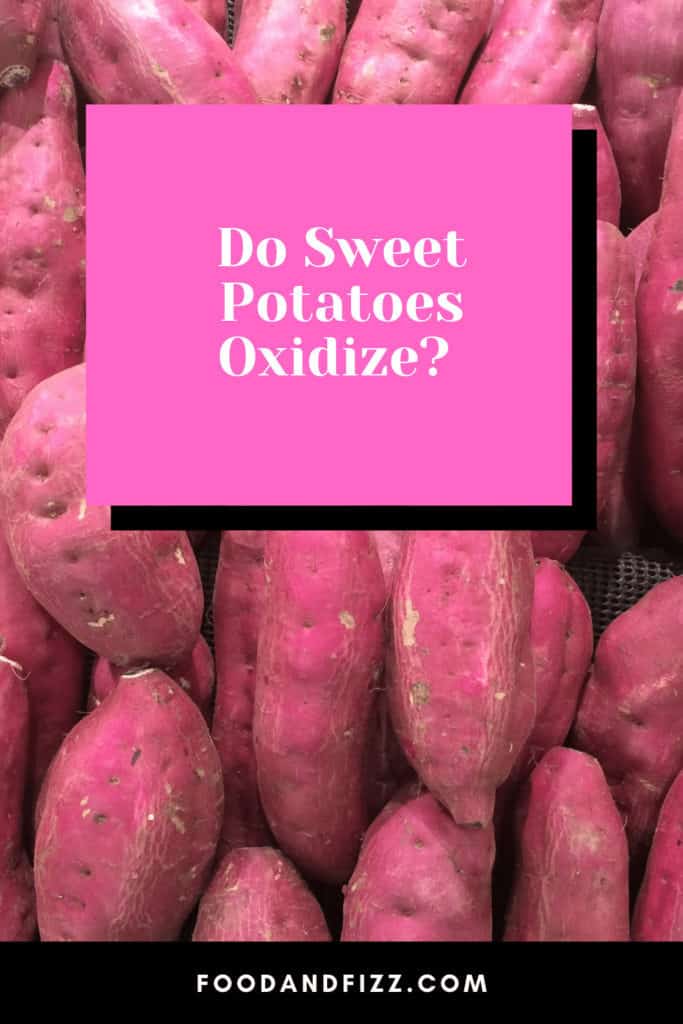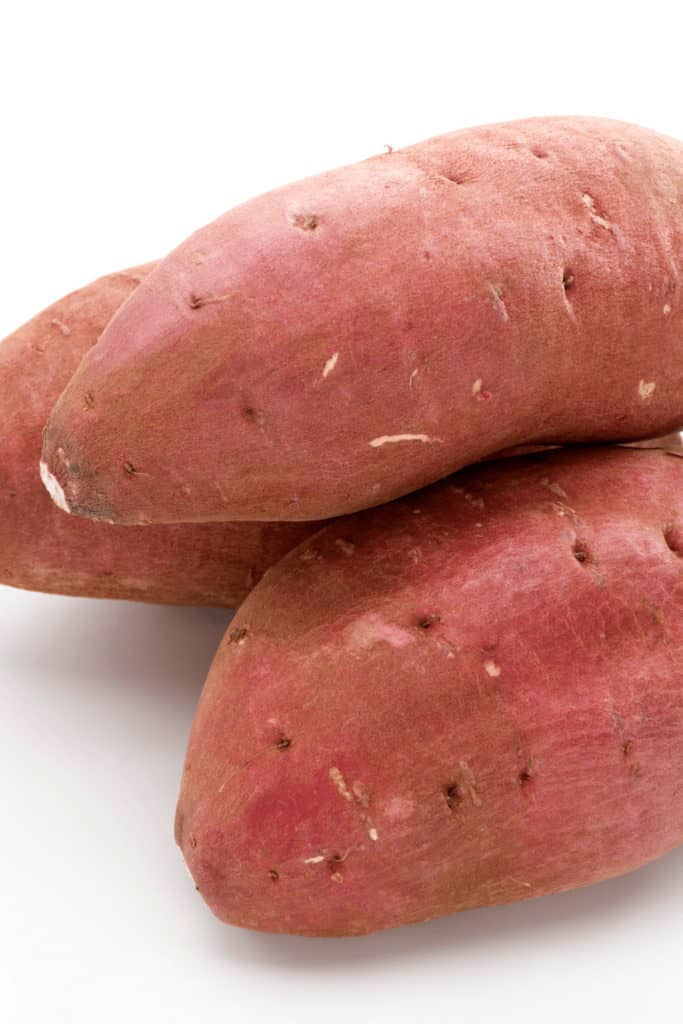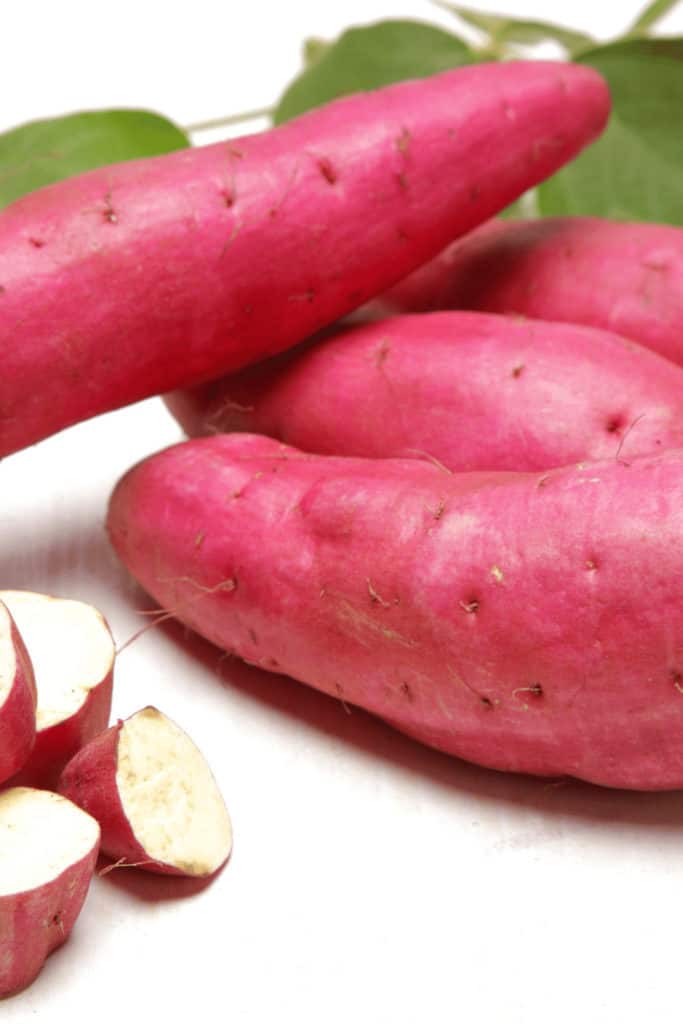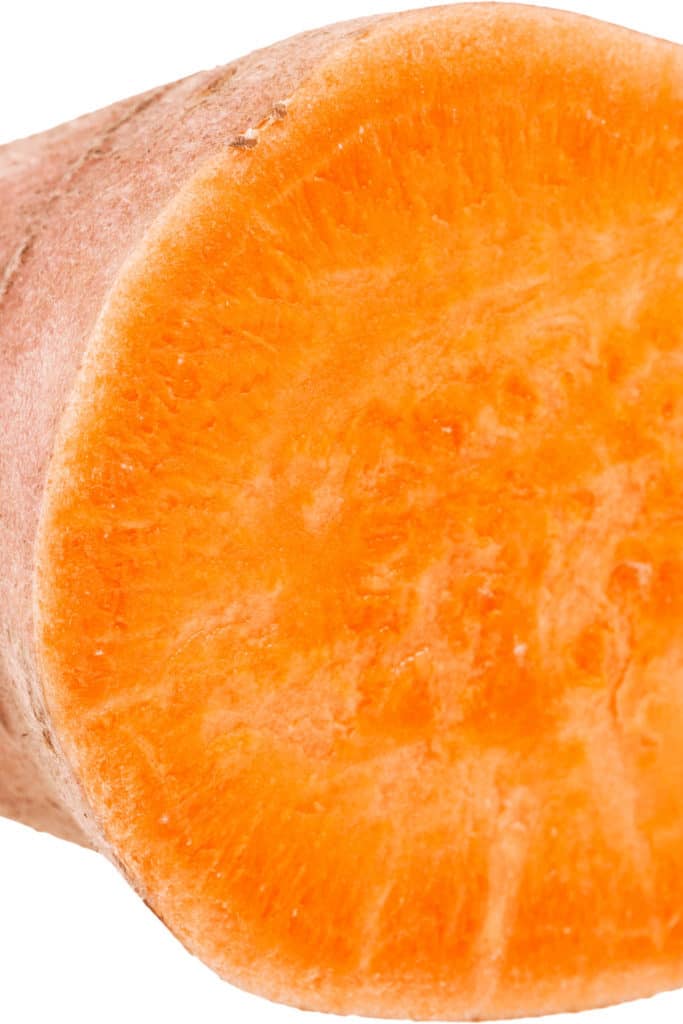If you’re a home cook, the answer to the question of whether sweet potatoes oxidize is likely important to you. The good news is that, in general, sweet potatoes don’t oxidize all that much.
The bad news? There are a few things you need to watch out for if you want to make sure your sweet potatoes stay fresh and tasty.
In this blog post, we’ll take a look at what oxidation is, why it happens with sweet potatoes, and how you can prevent it from happening in your kitchen.
Do Sweet Potatoes Oxidize?
Sweet potatoes do oxidize. Oxidation is a chemical reaction that occurs when the potato’s cells are exposed to oxygen. This exposure can happen through contact with the air, or it can happen when the potato is cut open. When oxidation occurs, the potato’s cells break down and release enzymes that cause the potato to turn brown.

What Happens During Oxidation
Oxygen is a powerful element. It’s what gives us the air we breathe and the water we drink. It’s also what gives us rust on our cars and wrinkles on our skin. When oxygen comes into contact with another element, it can cause that element to break down. This is what happens during oxidation.
When sweet potatoes are exposed to oxygen, their cells begin to break down. This process is called oxidation. As the cells break down, they release enzymes that can change the structure of the potato and cause discoloration, as well as softness and smell differences.
Because the oxidation process happens slowly and gradually, it may be hard to tell when your sweet potatoes have oxidized or when you should do something about it. Your best bet is to prevent oxidation before it happens so you don’t run the risk of ruining your potatoes.

What Effect Does Oxidation Have On Sweet Potatoes?
While this may not sound like a big deal, oxidation can actually have a significant impact on the taste and texture of your sweet potatoes.
For instance, when potatoes oxidize, they become less sweet and more bitter. In addition, the potato’s cells break down, causing the potato to become mushy.
This process might actually be better for some recipes. For example, if you’re making mashed sweet potatoes, you might want to let the potatoes oxidize for a bit before cooking them. This will help to make them extra mushy so you don’t have to do much of the manual labor in breaking them down.
For other recipes like baked sweet potatoes, you may want to keep as much sweetness as possible, especially if you plan on having them for dessert. Serving a bitter sweet potato won’t have the same satisfying taste.

How Can You Prevent Oxidation?
There are a few things you can do to prevent oxidation from happening to your sweet potatoes. First, make sure to store your sweet potatoes in a cool, dark place. Your pantry is probably the best option for storing sweet potatoes if you plan on cooking them within the next couple of days.
If you’re going to be storing them for more than a week or so, you might want to keep them in the fridge. This will help them stay cool and free from the oxidation they’d experience in a room-temperature environment.
Second, when you’re cutting your sweet potatoes, make sure to do it under running water. This will help to prevent oxygen from getting to the potato’s cells. You can also keep a bowl of cool water and soak your potatoes in the bowl while you’re setting up the rest of your ingredients.
You can also add a little salt to the water as this will help to prevent the potatoes from oxidizing. Just make sure not to add too much as this can make your potatoes taste too salty when they absorb all the salt in the bowl.
You can coat your sweet potatoes in a bit of oil before cooking them. This will help to create a barrier between the potato and the oxygen in the air. Olive oil or vegetable oil are both good options.
Finally, if you’re not going to be cooking your sweet potatoes right away, make sure to coat them in lemon juice. The acid in the lemon juice will help to prevent the oxidation process.

What To Do If Your Potatoes Are Brown
A little bit of browning is still ok and you can use the sweet potato like you normally would but if your potatoes are heavily discolored, you might want to consider throwing them out.
Check the inside of the potato by cutting it open and see how much of the potato has turned brown or black. If there is a big amount, go ahead and throw the potato out because it is no longer good to eat.
If there are just portions of the sweet potato that are discolored you can cut those pieces away from the rest of the potato and continue cooking like you normally would.

Frequently Asked Questions About Do Sweet Potatoes Oxidize
How long can uncooked sweet potatoes sit out?
If sweet potato is uncut you can leave it out on your counter at room temperature for a couple of weeks to one month. If the sweet potato is cut, you should only leave it out for a few hours as the surface area that is exposed to oxygen will start to oxidize. Leave it in the fridge after cutting for best results.
Can I still cook with an oxidized sweet potato?
You can cook with an oxidized sweet potato, but the taste and texture might be affected. The more oxidized a potato gets the less sweet it will be and the mushier it will become. Some recipes will be better if potatoes are oxidized but not every recipe will be better for them.
Do sweet potatoes turn green?
Sweet potatoes will not turn green but they can start to develop a white film on the surface if they are cut and exposed to oxygen for too long. This film is harmless but it can affect the taste and texture of your sweet potatoes. If you’re cutting sweet potatoes, make sure to do it under running water or keep them in a bowl of cool water to prevent oxidation.
Conclusion About Do Sweet Potatoes Oxidize
It’s possible for sweet potatoes to become oxidized, especially after being cut or peeled. That doesn’t mean they’ve gone bad, but it can affect their taste and texture. As long as your sweet potatoes aren’t completely brown or black you should be able to use them even if they have some oxidization.

